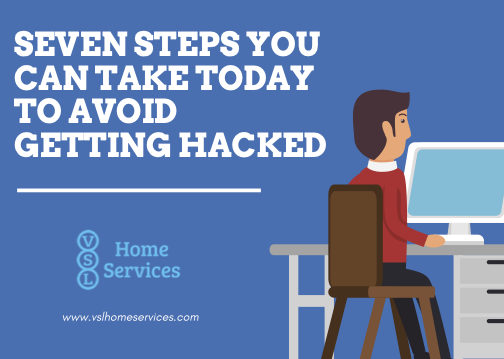
Cybercrime is on the rise and only getting worse. It seems that there is a new attack in the news every day lately. Many people have been hacked before, and many more still are joining the ranks.
Being hacked can have many detrimental impacts such as:
- Decreased privacy
- Loss of data
- Financial loss
- Identity theft
- And more.
When we look outside the box, being hacked can lead to feelings of vulnerability, paranoia, and lost sleep. It is crucial to take steps to protect yourself. Let’s take a look at a few steps you may take to help avoid being hacked.
How to avoid being hacked
Use mobile-based payment systems
Skimmers are out there, and anyone could fall victim to them. RFID chips have been added to credit cards and can be read from several feet away. While it is unlikely that your card information will be stolen in this manner, it is possible.
Mobile payment systems like Apple Pay and Google Pay are more secure than your credit cards. Most businesses now have payment systems capable of taking payment this way, so you can still pay for your groceries while at the store, and your coffee from the coffee shop.
Use multi-factor authentication
Hackers will often go for your login credentials, so they can log in as you and gain access to your system or data. Multi-factor authentication helps to keep them locked out when they attempt to log in. Multi-factor authentication comes in many forms and flavors. How it works is when you attempt to login to a website or application, it will only give you access after you provide additional pieces of evidence that you are you. This may be a security question like the street that you grew up on. It may email or text you an additional code to enter. You may use an authenticator app that will generate a one-time password (OTP) for you to enter.
Use strong credentials and a password manager
Strong credentials, generated by your device, make it difficult for a hacker to gain access to it. A best practice is to use these strong credentials to help mitigate the risk that a hacker will gain access to your login credentials. The thing about strong credentials is that they are hard to remember. To solve this issue, use a password manager. A password manager is like a book of all your credentials that is locked by a master key, that only you have. Some password managers use a biometric lock, like facial recognition or your fingerprint to unlock. Password managers are encrypted, adding to the level of security. They sync across devices, letting you take your passwords with you anywhere you go.
Install a security suite
A security suite is a collection of software that protects your computer from viruses and other malware. In a security suite, all of the utilities are controlled in one central dashboard. The main aspects of a security suite are the antivirus and firewall, but it has other aspects, like phishing filters, cookie scanning, spam ware, adware, and more.
Get help from the experts
When you fall victim to a hack, what do you do? The US Federal Trade Commission has an advice website for when your fall victim to a hack and identity theft. They have a plethora of information for you, including the forms you will need to start putting your life back together.
Update your software regularly
We have hit on this point several times recently. Cybercriminals target known flaws in software to gain access to your system. Developers will update their software and applications when they become aware of any flaws and release the solution through a patch. Updating your software regularly helps combat hackers being able to gain access to your system through known flaws.
Educate yourself
The fact is that 95% of cybersecurity breaches are due to human error (Varonis). Learn how to spot a phishing email to help ensure you do not fall victim to any attacks. Do not click links that you don’t trust or don’t come from a trusted source. Do not open attachments from senders you do not trust nor expect. There are many steps you can take to avoid falling victim to a cyber attack.
